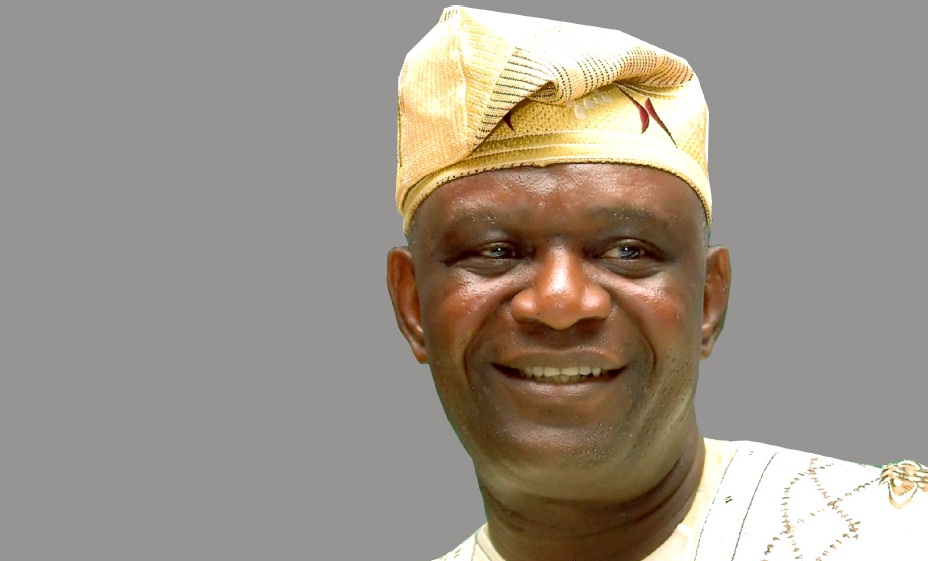How ASUU can press demands without strike — Prof Jegede
Emeritus Professor Olugbemiro Jegede is the founding Vice Chancellor of the National Open University of Nigeria (NOUN) and a former president of the African Council for Distance Education. In this interview, he speaks on the ongoing ASUU strike and how to address it. ASUU is on strike again to press home its demands. What are […]

Emeritus Professor Olugbemiro Jegede
Emeritus Professor Olugbemiro Jegede is the founding Vice Chancellor of the National Open University of Nigeria (NOUN) and a former president of the African Council for Distance Education. In this interview, he speaks on the ongoing ASUU strike and how to address it.
ASUU is on strike again to press home its demands. What are your thoughts on incessant strikes in public universities?
There is nothing positive or salutary about incessant strike actions, or indeed any single strike action in public universities. It is an indication of lack of trust, lack of integrity in the implementation of agreed negotiations. It indicates that the government and ASUU are not on the same page regarding their commitment and management of higher education in Nigeria.
The ideal thing is for both parties to be on the same paragraph, not just on the same page. Incessant strike actions in public universities will continue to erode public confidence in the university system. This may lead to students and parents voting with their feet and streaming to other universities.
What does the strike mean to students, especially those who are about to graduate?
A number of universities are just about to commence semester examinations, while many others are continuing with postgraduate activities and many other academic activities such as seminars, conferences, workshops, sabbatical leave and staff and student exchange programmes with local and overseas universities. Students, who have only just gone back to school after the Christmas/New Year break are back home with the associated stress on parents’ resources, time, space in the house and other matters.
Some students who have put a lot of hope in completing their academic journey and going to NYSC this year now have their hopes and dreams dashed while their counterparts in other universities not affected by strike actions will sail through effortlessly leaving the public universities students seemingly perpetually at the bus station.
This spells woes, misery, frustration, anger, pains and all sorts of unexpected outcomes of being students at public universities, which if looked another way, appears to be a punishment for attending public universities.
The students do not deserve this, parents did not bargain for this, and the government and their universities are forever embarrassed. The strike actions are needless and avoidable if the federal government puts its money where its mouth is and works out and implements agreements with ASUU.
How best can ASUU press home its demands without necessarily downing tools?
First and foremost, ASUU members are a part of the Nigerian society and have children in public universities. Hence, they will be reasonable in bargaining with the government and would understand and take the government’s limitations into consideration when negotiating.
If the government regularly reviews policy, staff development and the comprehensive management of higher education and gives academic staff all their dues, there will be no strike actions at all.
To press home their demands without necessarily down-tooling, ASUU should consider the long-term needs of universities and advise the government accordingly. This makes for good planning and budgeting.
On the other hand, the government should have listening ears and a functioning brain box of management. ASUU should not be treated like a pack of kindergarten children. ASUU is the custodian of knowledge generation and dissemination and guidance. They control, to a large extent, the quality of products in society and the level of excellence displayed by our graduates in society.
Whoever works is entitled to his or her wages, and the boss must willingly pay for work done. None or irregular payment of staff is fraught with danger and untold implications which haunt society and water down the quality of education and ultimately the products of our education system.
What is the way out for both lecturers and students?
For both lecturers and students, they must embark and capitalize on virtual, digital and or online teaching and learning which defy time, location, space and need for a face-to-face meeting.
Many private universities in Nigeria have gone the way universities in other countries have. If they use this medium, they will continually study despite strike actions and once the universities resume, they would not have lost any academic ground.
Lecturers need to put forward their needs to government well ahead of time. Budgeting and plans for funding should project beyond 12 months to at least five to 10 year period.
Universities should be more entrepreneurial to generate resources and rely less on government. Government should take the universities out of the IPPIS, which is inimical to academic progress and injurious to the capacity of staff and students.
An honest, down to earth, transparent and sincere deliberation by all parties is needed if we must forge on with excellent education in our public universities and the country as a whole.
